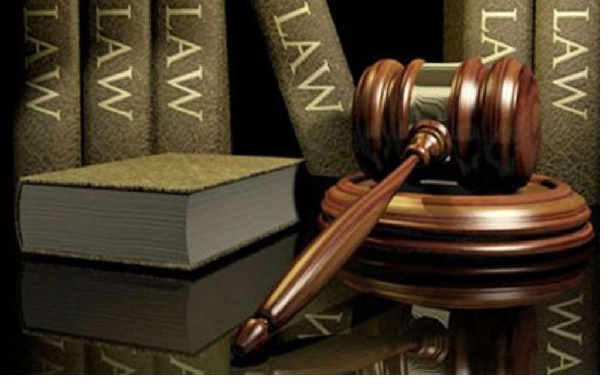Fundamental are essentially norms that are created to guide human behaviors by a standard protected by a country’s laws. After the adoption of a presidential and democratic system of government, human rights was introduced by the government in the 1999 Constitution of Nigeria which protects and sets the standards of which human behaviors adhere to and the rights that every human being that is a citizen of Nigeria possesses.

This is a list of the fundamental human rights in Nigeria:
-
Right to life
The Nigerian Constitution confers the right to life for every citizen of the country. However this right concedes in situations that may include; lawful arrest or prevention of the escape of detained an individual; execution of a court judgment in regards a criminal offense of which an individual has been found guilty of the crime accused of; defense against a citizen performing unlawful acts of violence; and death that may result from government’s response in suppressing a riot, civil unrest or mutiny.
-
Right to dignity of human persons
Every citizen of the Federal Republic of Nigeria is protected against being subject to degrading treatments. This right further protects Nigerian citizens from being held in forced servitude. However, there are situations such as labour designated to an individual in respect to a court judgment, labour required of the military in accordance to the discharge of their duties, or labour that may result in the event of a calamity jeopardizing the wellbeing of the society.
-
Right to personal liberty
The Nigerian Constitution gives every citizen of the country the right to personal liberty. It is noteworthy to state that this right does not cover situations such as these; in implementation of a court sentence in response to a criminal offense of which an individual has been charged as guilty; the failure of an individual to achieve the satisfaction of any obligation imposed by the law, and other measures that may be applied in consideration with the general benefit to the larger society. Even in the event of arrest or detention, a Nigerian citizen is fundamentally capable of avoiding answering questions until consultation with a legal practitioner. In event of wrongful arrest and detention, this right directs that such citizens be duly compensated and offered a public apology by appropriate authorities assigned by law.
-
Right to a fair hearing
Every citizen of the Federal Republic of Nigeria is entitled to a fair hearing in the intention of his civil rights and obligations, in a reasonable time by a court of competent jurisdiction void of partiality. Also, when an individual is charged with a criminal offense, likewise there is entitlement to a fair hearing within a reasonable time by a court. By this law, all persons charged for a criminal purpose are deemed innocent until the court proves otherwise. This right essentially offers every citizen of the country an avenue to seek legal assistance if there is a feeling that contravention is against the rights of the individual.
-
Right to private family life
The 1999 Constitution entitles the citizens of Nigeria to the privacy of private and family life as well as guarantees the protection against the intrusion of privacy on their residences, telecommunication channels, and correspondence.
-
Right to freedom of thought, conscience and religion
Every citizen of the country is entitled to practice and perform any choice of religion or belief as deemed fit without restrictions. A Nigerian citizen may choose not to engage in the teaching, practice and observance of religion in an educational institution if the religion is other than what the individual practices. However, in an educational facility maintained by a religious organization, there exist no restrictions on the religious community on providing religious instructions to pupils of the facility.
-
Right to peaceful assembly and association
Every citizen of Nigeria has the right to be a member of a political party, trade union, body, or any association for the furtherance of his interest. This right does not however relinquish the powers of the Independent National Electoral Commission in regards to political parties recognized as legitimate by the Commission.
- Right to freedom of movement
Every rightful citizen of Nigeria is entitled to freely move throughout Nigeria and reside in any part of the country freely. But if an individual has committed a crime or is in suspicion to have committed a crime, the movement of such individual may be restricted to prevent escape from the country. Also, this right concedes in cases of extradition of an individual to another country, if there exists an agreement between both countries, to be tried for a criminal offense in a court or to serve a prison sentence after being found guilty of a criminal offense.
-
Right to freedom from discrimination
Every citizen of the country irrespective of place of origin, sex, ethnic group, religion or political affiliation has the right to not be discriminated against by the application of such administrative actions of the government based on place of origin, sex, ethnic group, religion or political affiliations that keeps the individual at a disadvantage. Also, an individual may not be given an undue advantage because of ethnic group, place of origin, religion, or political affiliations over citizens from of different places of origin, religion, political affiliation, or ethnic group.
-
Right to acquire and own properties
Any person in Nigeria is entitled to own real estate and other immovable properties anywhere within the country. Therefore, there exist no restrictions where a Nigerian may not be able to acquire immovable property, unless on special considerations as stated by law.
-
Right to freedom of expression and the press
The citizens of the Federal Republic of Nigeria are entitled to freely express their opinions and impart ideas and information without interference. This right also gives Nigerians the right to freely own, create and operate any channel of information dissemination, in fulfillment of laid down conditions as required by the Act of the National Assembly.